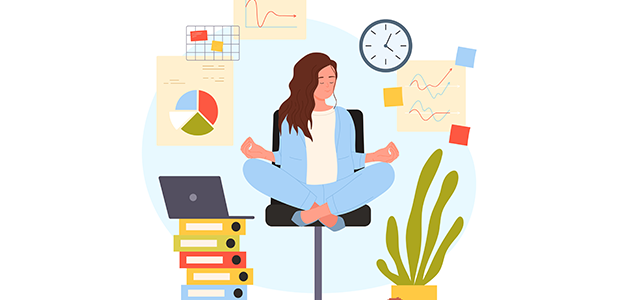
Fostering Mental Health Resilience in the Workplace
On World Mental Health Day, International SOS, one of the world's leading health and security risk services companies, puts a spotlight on the increasing importance of mental health resilience for global workforces.
In a global landscape in which there are ongoing poly- and permacrises, the impact of these challenges on the mental health of employees has never been more significant. A global pandemic, the cost-of-living crisis, geopolitical challenges and the accelerating rate of change in today’s workplace have placed unprecedented stressors on individuals and organisations worldwide.
The World Health Organization (WHO) reported that 15% of working-age adults live with a mental disorder in 2019, and 12 billion working days are lost every year to depression and anxiety alone. International SOS Assistance Centre has already seen a 5% increase in the number of requests for assistance related to mental illness during the first half of 2023 compared to the same period in 2022. Poor working environments, including discrimination and inequality, excessive workloads, low job control and job insecurity all pose a risk to mental health. Without effective support, mental illness can impact an individual’s capacity to work productively, absences and the ease with which they can retain or gain work.
Dr Oliver Harrison, CEO of Koa Health, a leading global provider of digital-first mental healthcare, said, “We live in challenging times, with cost-of-living pressures worldwide, recovery from the pandemic and conflict in Europe against a backdrop of the climate crisis. In this context, mental health resilience has become a critical matter for organisations, public and private. Employees spend one-third of their lives at work - which means employers are uniquely positioned to support employees’ mental health, both by avoiding harm and promoting comprehensive benefits that are inclusive and easy to navigate.
“To strengthen the health of both their team and their business, organisations must take action to prioritise mental health and wellbeing for all their employees. Whether team members are dealing with everyday mental health challenges or require clinical support, employers must ensure that their workforce has access to the mental health support they require when and where they need it.”
Dr Rodrigo Rodriguez-Fernandez, International SOS Global Health Advisor, Wellness and Mental Health, said: "Overlooking mental health issues in the workplace comes with a significant price, both emotionally and financially, and it is a concern we cannot afford to sideline. The repercussions touch everyone, from individual employees to the organisation as a whole. As individuals might face considerable costs when seeking mental health resources, organisations are uniquely positioned to champion preventive strategies and offer affordable counselling and support to their teams.
“Organisations dedicated to fostering a lasting mental health culture understand the critical need to arm every stakeholder with the insights and resources to grasp the depth of mental health. By recognising the significance of mental wellbeing organisations pave the way for holistic employee wellness programmes. Such endeavours aim to build a steadfast and resilient environment, ready to navigate the complexities of today's ever-shifting landscape.”
Dr Oliver Harrison, CEO of Koa Health, added: “With the shortage of mental healthcare professionals reaching record highs, even those employees with a clinical diagnosis struggle to access the support they need. For individuals who don’t yet have a diagnosis, there are usually very few resources, which leaves us in an incredible situation in which people need to get worse before they can access treatments to get better.
“How do we respond? Looking ahead, mental health must be integrated into the benefits strategy, not considered in a separate silo. Organisations will increasingly harness a blend of human and technology to create a more effective and inclusive approach to mental healthcare better to serve the mental health needs of all employees.”
International SOS provides a framework for organisations to safeguard the mental health and wellbeing of their employees:
- Foster a supportive work culture and ensure leadership commitment: Create a workplace culture and environment that prioritises and encourages open dialogue on mental health. Integrate mental health initiatives into relevant policies and practices that support it.
- Promote mental health awareness: Implement comprehensive mental health awareness campaigns to reduce stigma and encourage open dialogue.
- Provide accessible resources: Ensure employees have a toolkit of mental health resources at their fingertips, from counselling to self-guidance materials.
- Adapt to individual needs: Offer flexible work arrangements to accommodate individual needs and reduce work-related stress.
- Training and education: Roll out mental health training, enabling everyone to spot, understand and assist with mental health challenges.
- Monitor and assess: Seek feedback and continuously monitor the mental health of employees through surveys and assessments to adapt programmes as needed.
- Employee Assistance Programs (EAPs): Provide EAPs that offer confidential counselling and support services to employees. Digitally enabled mental health care, such as the Koa Foundations Wellbeing App, allows organisations to maximise EAP and existing services uptake and widen access to care while containing or significantly reducing costs.

